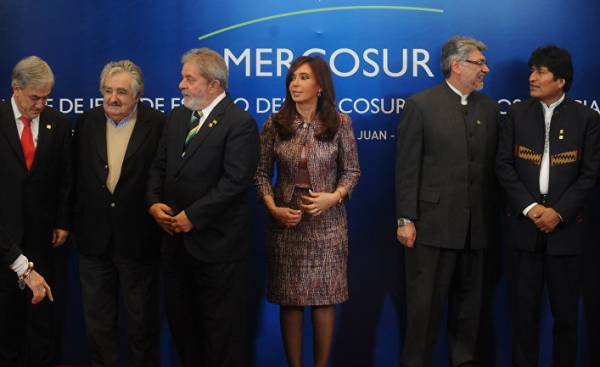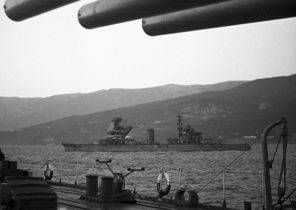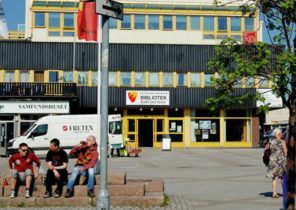
Political life in Latin America has entered a fundamentally new stage of its development.
After the death of Fidel Castro and the upcoming departure of Raul from the political arena in February of 2018 in Cuba will end the dynastic dictatorial regime. It is too early to predict which way will Cuba go in the absence of the Castro brothers. Undoubtedly, this will lead to drastic changes in the region.
In the first row of the coming changes is Ecuador. In the second round of the presidential elections the best chance to win is Guillermo Lasso (Guillermo Lasso). A protege of the current President Rafael Correa Moreno Lenin (Lenin Moreno)in the first round failed to gain the winning number of votes.
Since josé maría Velasco Ibarra (Velasco Ibarra, José María), who five times served as President of Ecuador (the first time in 1934, the last in 1968) among Ecuadorians has never been so odious leader like Rafael Correa. The years of his reign are connected with the contempt for state institutions, a complete disregard of the independence of the various branches of government, subordination of television and press their political interests, corruption scandal Odebrecht.
Presidential programme entitled “Civil revolution” has completely failed. With the coming to power of the liberal politician Guillermo Lasso, one should expect the collapse of the Bolivarian Alliance for the peoples of our America (ALBA).
In Bolivia President Eva Morales is a staunch supporter of socialism of the XXI century — the referendum, the citizens refused to run for a fourth term in 2019.
Venezuela leaps and bounds and follows the path of political and economic collapse, humanitarian crisis and international isolation. No one can guarantee the holding of presidential elections scheduled for 2018. Maduro may try to prevent them from carrying out for fear of losing power and being on the bench of the defendant.
So, most likely, in the future Latin America will have to live without the dynasty of the Castro brothers, of chavismo and the Bolivarian Alliance for the peoples of our America.
The upcoming November presidential elections in Chile promise to change the country’s leadership. To replace Michelle Bachelet, who was elected to the presidency from the Socialist party, can come Lagos or Insulza (according to polls). It is believed that with the change of government in Chile to improve the economic situation, governance, and foreign policy will be more liberal.
A second presidential term, Michelle Bachelet was less successful than the first. A coalition with the Communists led to the deterioration of the economic growth of the country and the polarization of society. However, institutional factors in Chile suggests that the country will be able to get back on course for economic growth, national confidence and prosperity.
Columbia, no matter who came to power in the presidential election in may 2018, will follow the course indicated álvaro Uribe and Juan Manuel Santos. Colombia in Latin America looks like an economically prosperous country, managed to put an end to the civil war and violence. The political class, prevailing in Colombia provides an effective control on the economic macro level. The country has effective entrepreneurs and smart trade policies. So the change of government in Colombia does not Bode any surprises.
There is no doubt that trading bloc “Pacific Alliance”, which includes Peru, Mexico, Chile and Colombia will continue to exist, regardless of the outcome of the election in 2018. Mexico after coming to power of Donald trump and his plans to build the border wall, as well as intentions to terminate the agreement the North American free trade zone will be forced to turn to Latin America. Even if hypothetically to assume victory in the presidential elections in Mexico, the representative of the left, Lopez Obrador (López Obrador), the country will still be in the Pacific Alliance to counter the powerful Northern neighbor.
In South America, Brazil stunned the corruption scandal in the case of Lava Jato (“car Wash”). The international reputation of the country undermined. It’s time to get rid of corrupt politicians and choose a worthy candidate for the presidency. Such a candidate could become a Federal judge Sergio Moro (Moro Sergio), who heads the operation Lava Jato. As a result of the activities of Moro dozens of large Brazilian businessmen went to jail for long terms and almost 50 high-ranking politicians are under investigation.
He could be a serious competitor to the former President of Brazil Lula da Silva, who is leading in popularity among the candidates who can apply for the post of the head of state in the elections of 2018.
Lula da Silva was involved in corruption scandals involving state oil company Petrobras and the construction company Odebrecht. Moral crisis, economic downturn and the discontent of the population can play a crucial role to prevent the arrival of supporters of socialism to power.
Argentina has made a sharp turn to the right, abandoning the populist ideas of the couple Kirchner and Chavez. It is necessary to solve the hardest problems inherited from Cristina Kirchner. The current President of Argentina Mauricio Macri is trying to improve the economy and to attract an impressive human and industrial potential available in the country.
In this way can be a serious obstacle due to the fact that the Argentine economy has close trade and industrial ties with Brazil, which is currently experiencing severe political and economic crisis. Argentina and Brazil are members of the southern common market (MERCOSUR) in which there is a strict protectionist customs constraints to entering the global market and policies of economic openness in the context of globalization.
In diplomacy the countries of Latin America must focus its efforts on creating conditions for the unification of the two economic blocs — the Pacific Alliance and the southern common market. Currently, these two models of economic development have profound differences. The Pacific Alliance has emerged as the natural Union countries, preaching an open economy, while the common market of the South pursued a policy of erecting obstacles to free movement of goods and services.
The processes of globalization and the logic of the free market point to the fact that the countries on the shores of the Atlantic will have to make extreme efforts to reform the South American common market in accordance with modern conditions of the free market and to adopt appropriate legislation.
There is no other way.






